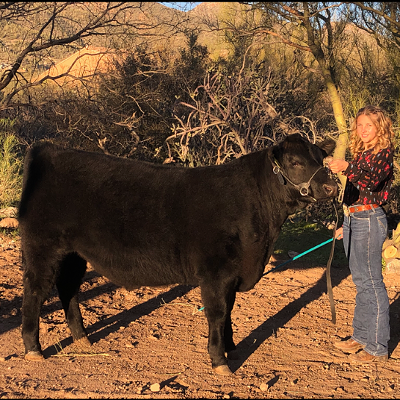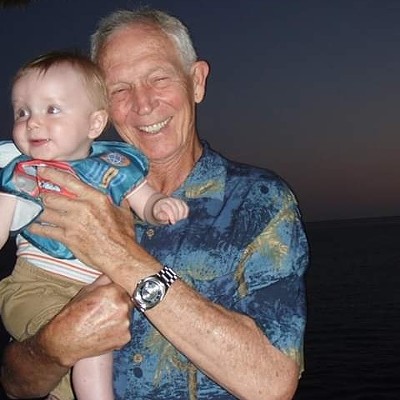Monday, January 11, 2016
Into the Mild: Journal From a Refugee Camp, Week Four
Lesvos Island, Greece – December 2015 – January 2016
Dec. 28
The day has finally come to spend the rest of my donated money. I met with two friends and drove around the city of Mytilene, looking for box stores to buy gloves and shoes in bulk. We settled for a Chinese store downtown, making three different trips to spend every dollar we had raised.
We didn’t count everything, but we got roughly 25 pairs of shoes, 100 pairs of socks, 50 pairs of gloves, 50 pairs of underwear, 20 jackets, plus assorted clothes for children and women.
We then went to Moria, the largest refugee camp on the island, in the afternoon to link up with the two Spanish women I would share rides with for the week. They had returned to Camp Pikpa, a camp for refugees with special health considerations that I previously worked at, for the afternoon. I instead used a very expensive taxi and soon realized how far out the new hotel is. 15 euros a night for a quality hotel near the camp was too good to be true!
I considered returning to the tent at Camp Pikpa that night. My new room was very cold, didn’t have hot water, and was 40 minutes from work at Camp Moria. I missed my friends at Pikpa and spent the cold night feeling like I was on the moon. I wanted to be in my old tent at Pikpa.
I promised to take 24 hours before making a decision.
Dec. 29
I met the Spanish women in the hotel lobby in the morning and we drove together to Moria. The older of the two spoke no English, meaning most of the conversation was in Spanish. I thought it was fun at first and enjoyed practicing Spanish again and learning a new accent, but doing this for two hours per day in your third language is exhausting.
I worked that morning at the clothing distribution tent, sorting clothes when it was slow and being an interpreter when the line grew. It felt great to arrive and start working immediately and be busy for the entire morning. Working in "Greek time" at Pikpa the previous two weeks had been unbearable. Impatience will be the death of me.
Sorting clothes was exactly what you would expect it to be. Being an interpreter, however, was fun! Watching people leave without what they came for is never pleasant, but I enjoyed the nonstop banter and language practice. The refugee men seemed to view themselves as in a competition with the volunteers for our finite supplies. We found a trick: giving a razor to someone who didn’t get new clothes often allows him to save face and leave happy. The women in line were very bouncy and seemed to enjoy how we not only treated them with respect, but even joked with them and complimented their clothes. It’s almost as if they enjoy being treated like human beings.
The Spanish women and I went back to Pikpa for the afternoon, sorting clothes and seeing friends I had missed dearly over the long, horrendous, eternal previous 36 hours.
I returned to the hotel that night to a new room. This one was warm and had hot water. Between this and the positive experience at Moria, I decided to bury the idea of living at Pikpa again. Moria would be my home now.
Dec. 30
I spent the morning split between working at the clothing tent and making a sign for the children’s tent. J, a Swiss volunteer who ran the day shift at the clothing distribution tent at Moria, again asked if I wanted to take over for her when she left the next day. I turned her down. Transportation for the specific hours would be an issue, which was very convenient as I didn’t want that responsibility anyways.
The sign that I made was in Farsi, explaining that the volunteers are not liable for any injuries or accidents and that parents are required to be there when their child arrives to or leaves the facility. The English version featured a lot of very specific terms that I had trouble translating. I gave it my best shot anyways, and my friend told me that I even snuck some real words in!
The Spanish women and I went to Pikpa again in the afternoon, hoping to work sorting the supply warehouse nearby. The boxes there were stacked so high that the weight destroyed the cardboard and the entire section collapsed. This led to a cartoon avalanche of broken boxes and unsorted clothing that takes up around 5,000 cubic feet.
We spent several hours sorting clothes and donations before being interrupted. A group of 20 refugees arrived to Pikpa at 8:00 that evening. Their raft had hit a rock near the shore nearby, sinking the raft and soaking everyone. We ignored the chaos and jumped into gear, getting everybody a medical screening and warm set of clothing.
Taking care of the new refugees was a perfect ending to a long day.
Dec. 30
I started the morning at the clothing tent again, but was soon pulled into a medical tent to work as an interpreter.
I last studied Farsi 10 years ago in the military. As such, my specialization was asking Sergeant Jamsheed where the rockets were or talking about political revolutions. After 10 years, work at the clothing tent was still easy enough. Shoes, socks, wet, new, and cold aren’t tough words. Now, my first test was to tell a young mother that the needle we were using was to draw blood from her finger to test her for potential diabetes. It was tough.
After talking to a dizzy woman about her symptoms and having trouble coming up with the right words, I felt pretty dejected. This was a lot harder than asking about shoe size.
The night was quiet. Christmas was full of parties and celebrations, but I rang in the new year from my bed. We were tired.
Jan. 1
This morning was spent at the clothing tent again. Halfway through the shift, someone came by and asked for help for a Green Peace project in the afternoon.
“It sounds like a colossal waste of time,” said the new shift manager. I agreed. I then left to work on the project.
We visited the life jacket graveyard on the north end of Lesvos Island, where tens of thousands of fake like jackets have been dumped. Nearly all refugees pay $45 for one of these life jackets before taking the trip from Turkey, meaning that there are nearly 500,000 fake life jackets that have come through the island. Those that aren’t upcycled or used on new projects are sent here.
We spent the next two hours making a giant peace sign on the side of a hill, then spent 15 minutes taking a picture, then spent another hour taking all of the life jackets back to the graveyard. It was indeed a colossal waste of time, but a fun one.
"So... what's the deep meaning behind this?," I asked. People explained to me that the peace sign was to raise awareness throughout the world about the plight of refugees. I asked them how many people in the world both followed Greenpeace and weren't aware that there was war in Iraq, and if these people would have time or resources to contribute to the effort anyways. They explained again to me about how important it was to raise awareness, in the tone of voice that a teenager uses when teaching his great grandparents how instagram works.
I brought Hobbes with me to grab a couple pictures of the Aegean Sea. It was too far to walk back to the car, so I tucked him under my sweatshirt with his head sticking out, then had at least 10 different photographers snap 10 to 15 pictures each of Hobbes and I working. I’m still waiting to see our pictures show up online. I sewed Hobbes five months ago and travel the world with him now, since all of my sissy friends have families or careers that they can't abandon.
Jan. 2
I started the morning acting as an interpreter at the clothing tent again. It was rough, as I literally had to pull and force people back in line when things started to get out of hand. Being aggressive towards the people you’re trying to help is sometimes necessary. But it was more than that. I felt contempt. I was supposed to be helping them. It wasn’t a healthy attitude.
I was relieved when S, a charismatic Kentuckian from the medical clinic, came and asked if I could act as an interpreter again. I said yes immediately.
I was anxious. My previous times as an interpreter at the clinic were tough. Asking detailed medical questions is tougher than asking shoe sizes.
About an hour in, a man placed a sleeping baby in my arms.
“Hold him while we look for his mother. Don’t worry, he won’t wake up.”
He assured me that the child wasn’t unconscious, he was just sleeping. And nobody is able to wake him up. And he’s been sleeping while being carried around for hours. But he wasn’t unconscious. I brought the child to a bed in the observation room and a nurse ran checks to make sure all was well. I didn't realize how insane that incident was until hours later.
After that, my nerves were calmed for the rest of the day. Missing a word here or there seemed trivial now.
I realized that this is where I needed to be. After three weeks of floating around on the island, I finally found my mission. I agreed that night to start working full-time at the medical clinic the next week. I would move into an apartment nearby where the nurses stayed and begin another chapter on Monday.
Jan. 3
Today is Sunday, my weekend. I let myself sleep until 8:00, then grabbed breakfast and started work on translating medical terms into Farsi. Diabetes and viral infections were beyond my charades skill level.
I spent the afternoon writing, talking with friends, and finalizing my application for a Kenyan visa. And resting. Tomorrow would bring another long job, with high stress and long hours.
Tags: IntoTheMild , Charity , Greece , Refugees , war , ISIS














